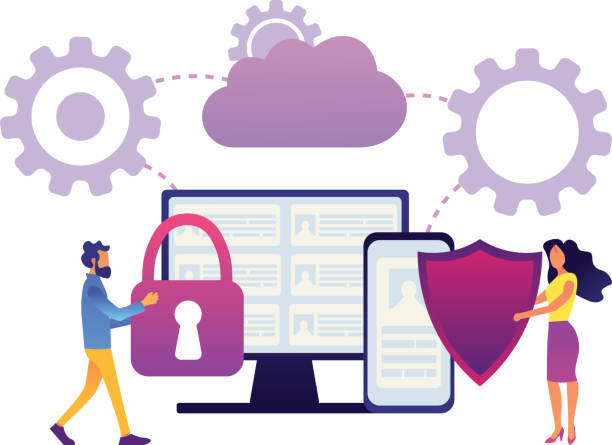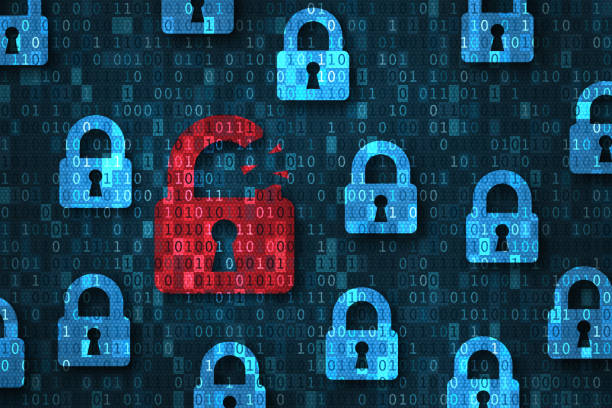
As churches increasingly rely on technology to connect with their congregations and carry out their mission, it is important for church leaders to consider the potential risks and take steps to protect their organizations from cyber threats.
In today’s digital age, hackers and other malicious actors are constantly finding new ways to access sensitive information and disrupt the operations of businesses and organizations. This is true for churches as well. From ransomware attacks that can hold church data hostage to phishing scams that can trick church staff into revealing their login credentials, there are many different ways that churches can be targeted by cybercriminals.
Fortunately, there are also many steps that churches can take to protect themselves from these threats. From implementing strong passwords and security protocols to educating staff and volunteers about the risks of cyber attacks, there are a number of best practices that churches can follow to keep their data and systems safe.
By taking a proactive approach to cybersecurity, churches can protect themselves from the potential consequences of a data breach or other cyber attacks, such as financial losses, damage to their reputation, and loss of trust from their congregations.
In this blog, we will explore some of the key risks that churches face when it comes to cybersecurity, as well as the steps that church leaders can take to protect their organizations and keep their data safe.
What is a Data Breach?
A data breach is an incident in which sensitive, confidential, or otherwise protected data is accessed, disclosed, or transferred without authorization. This typically occurs when hackers or other unauthorized individuals gain access to a computer system or network, often by exploiting vulnerabilities in the system or using various hacking techniques. Data breaches can have serious consequences for churches, as they can result in the loss or theft of sensitive information, damage to a church’s reputation, and financial losses.
Data Privacy vs Protection vs Security
Data privacy, data protection, and data security are related but distinct concepts.
Data privacy refers to the ability of individuals or organizations to control how their personal information is collected, used, and shared. It is concerned with ensuring that personal information is handled in a way that respects the individual’s right to privacy.
Data protection, on the other hand, is focused on the specific measures that organizations can take to protect the personal data that they collect and store. This can include measures such as encryption, secure storage, and access controls.
Data security, meanwhile, is the practice of protecting data from unauthorized access, use, disclosure, disruption, modification, or destruction. This can involve a wide range of technical and organizational measures, including encryption, firewalls, and employee training.
In short, data privacy is about respecting individuals’ rights, data protection is about safeguarding personal information, and data security is about protecting data from threats. All three are important for ensuring that personal information is handled in a responsible and secure manner.
Data Privacy
Data privacy is an important issue for churches, as they often collect and store a wide range of personal information about their congregations. This can include contact information, financial information, and other sensitive data.
To protect the privacy of this information, churches should have clear policies in place for collecting, storing, and sharing personal data. These policies should be shared with church staff and volunteer, and should be made available to members of the congregation upon request.
Churches should also take steps to ensure that personal data is stored securely, and should only share it with third parties when absolutely necessary and with the explicit consent of the individual concerned.
In addition, churches should regularly review their data privacy policies and practices to ensure that they are in line with changing laws and best practices.
By taking a proactive approach to data privacy, churches can protect the personal information of their congregations and maintain their trust and confidence.
Data Protection
Data protection is an important consideration for churches, as they often collect and store a wide range of personal information about their congregations. This can include contact information, financial information, and other sensitive data.
To protect this information, churches should take a number of steps to safeguard their data. This can include implementing strong passwords and access controls to prevent unauthorized access, regularly backing up data to prevent loss in the event of a disaster, and encrypting sensitive data to protect it from being accessed by unauthorized individuals.
In addition, churches should have clear policies in place for the collection, storage, and sharing of personal data, and should ensure that staff and volunteers are trained on these policies and understand their importance.
Churches can make sure that the personal information of their congregants is kept safe and secure by adopting a proactive approach to data protection. This can aid in preventing data breaches and other occurrences that might harm the church’s reputation and erode members’ faith.
Data Security
Data security for churches is the practice of protecting the personal data that churches collect and store about their congregations from unauthorized access, use, disclosure, disruption, modification, or destruction. This can include a wide range of technical and organizational measures, such as implementing strong passwords and access controls, regularly backing up data, encrypting sensitive information, and providing training to staff and volunteers on data security best practices.
The goal of data security for churches is to prevent data breaches and other incidents that can compromise the personal information of church members and to protect the reputation and trust of the church. By taking a proactive approach to data security, churches can safeguard the sensitive information that they collect and ensure that it is handled in a responsible and secure manner.
The Most Common Data Security Threats

It is difficult to say which specific data security threat is the most common for churches, as the threat landscape is constantly evolving and different organizations may face different risks. However, some of the most common data security threats for churches include:
1. Ransomware
Ransomware is a type of malware that encrypts a victim’s files and demands a ransom payment in order to restore access to the data. Ransomware attacks can be particularly devastating for churches, as they often rely on digital systems and data for their operations, and may not have the resources to quickly pay a ransom.
2. Phishing Attacks
Phishing is a type of social engineering attack that involves tricking individuals into revealing sensitive information, such as login credentials or financial information. This is typically done through email or other electronic communication, in which the attacker poses as a legitimate entity and attempts to convince the victim to provide sensitive information.
3. Insider Threats
Insider threats: Insider threats refer to attacks that come from within an organization, typically from employees or other insiders who have access to sensitive data. These threats can include employees who intentionally or accidentally disclose sensitive information, or who misuse their access to cause harm to the organization.
By being aware of these common threats and taking appropriate steps to protect against them, churches can reduce their risk of falling victim to a data security breach.
4. Denial of service (DoS) Attacks
DoS attacks are a type of cyber attack that involves overwhelming a website or network with traffic, making it unavailable to users. DoS attacks can be particularly disruptive for churches, as they may rely on their websites and online services to connect with their congregations and carry out their mission.
5. Cyber Espionage
Cyber espionage is the use of digital means to gather sensitive information for political, economic, or other purposes. This can include hacking into the networks of organizations to steal confidential data, or using malware to gather information from individual computers. Cyber espionage can be a serious threat to churches, as they may have sensitive information about their members and operations that could be of interest to hackers.
Controls and Solution
As the world becomes increasingly digitized, it is important for churches to be aware of and prepared for the potential cyber threats that they may face. Cyber threats can come in many forms, from phishing scams and ransomware attacks to malware infections and data breaches. While these threats can be daunting, there are steps that churches can take to protect themselves and their members from these types of attacks.
- One of the most effective ways for churches to protect themselves from cyber threats is to implement strong security measures. This can include using robust passwords for all of their online accounts, implementing two-factor authentication, and regularly updating their security software and systems. Additionally, churches should educate their members and staff on how to recognize and avoid common cyber threats, such as phishing emails and malicious websites.
- Another important step that churches can take is to regularly backup their data. In the event of a cyber attack or other disaster, having a recent backup of their data can help churches recover quickly and minimize the impact of the attack. This can include backing up data to an external hard drive or to a cloud-based storage service.
- Additionally, churches should consider investing in cybersecurity insurance. This type of insurance can provide financial protection in the event of a cyber attack, helping to cover the costs of recovering from the attack and mitigating any damages.
- If a church does fall victim to a cyber attack, it is important to respond quickly and effectively. This can include contacting law enforcement and cybersecurity experts for assistance, as well as informing members and staff about the attack and the steps being taken to address it. It may also be necessary to temporarily shut down certain systems or services in order to prevent the attack from spreading.
Overall, while cyber threats can be a daunting prospect for churches, there are steps that they can take to protect themselves and their members. By implementing strong security measures, regularly backing up their data, and investing in cybersecurity insurance, churches can help to mitigate the risks posed by these types of attacks.
About Us
Churchplus is a church management software option available that can help automate your church’s administration and make it easier to manage various aspects of your church, such as increasing attendance, retaining first-time guests, and managing church finances.
Our software program typically offers a range of features and tools that can help with church administration, such as attendance tracking, guest management, financial management, and volunteer management. It also offers additional features, such as event planning and scheduling, sermon management, and communication tools.
By using Churchplus church management software, you can streamline your church’s administration and make it easier to manage various aspects of your church. This can help you focus on growing your church and serving your community more effectively.


